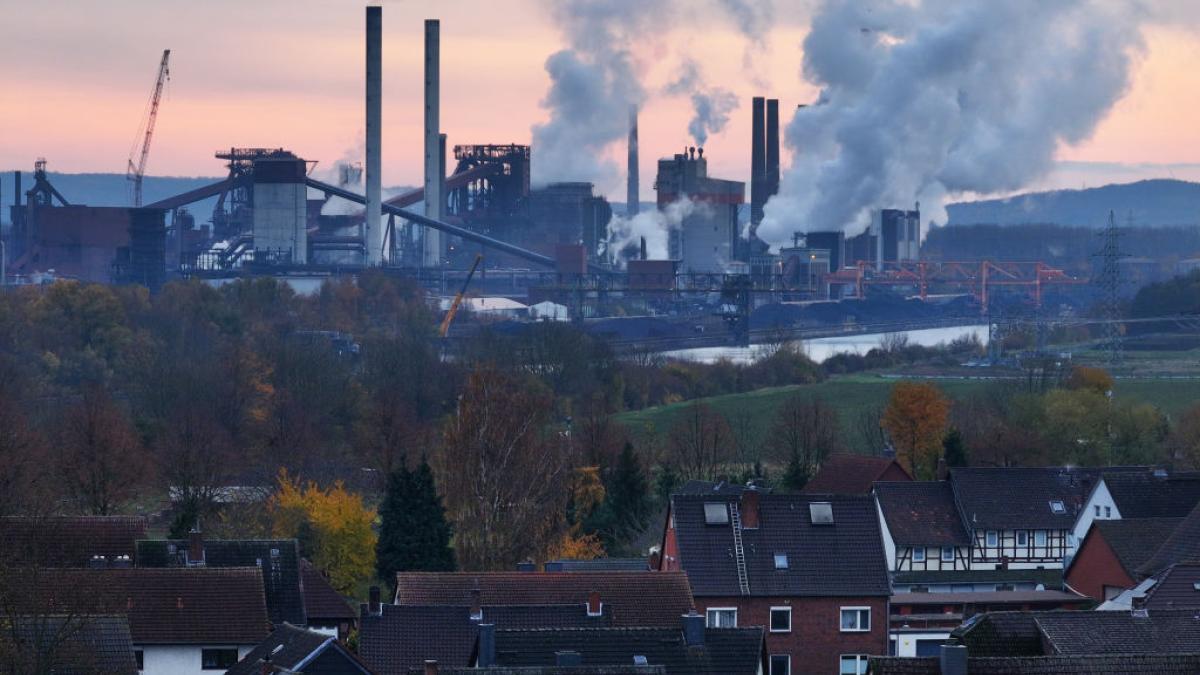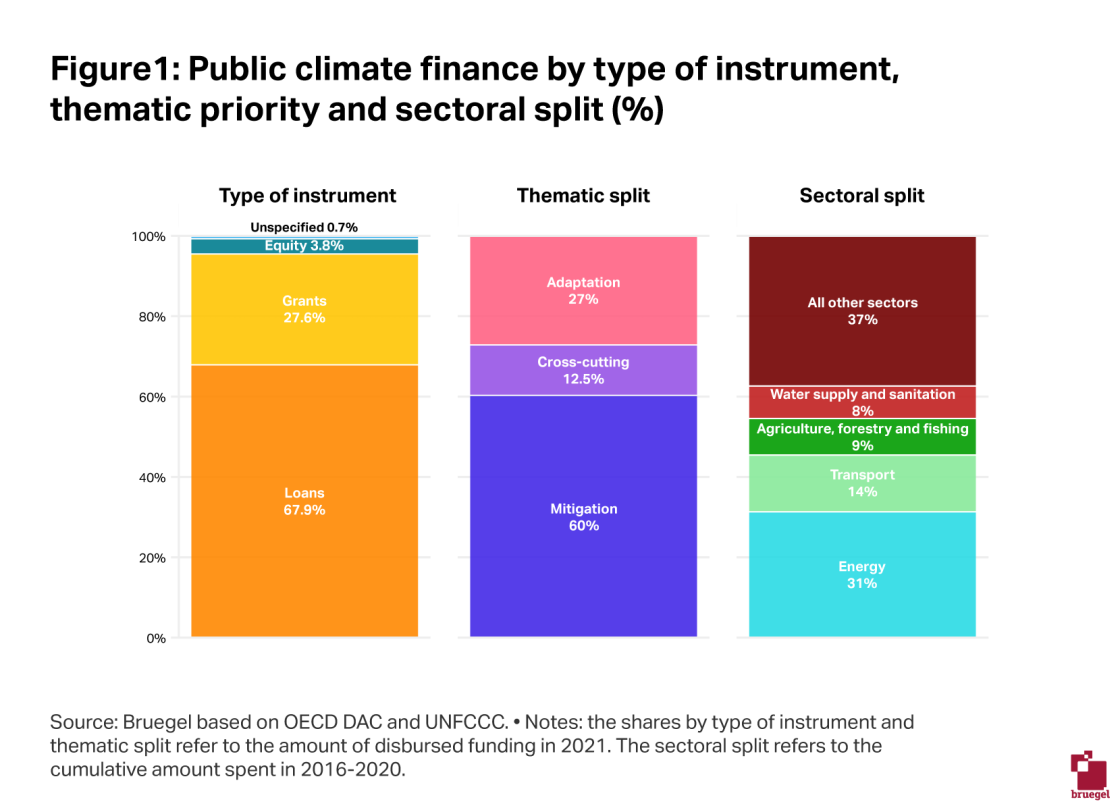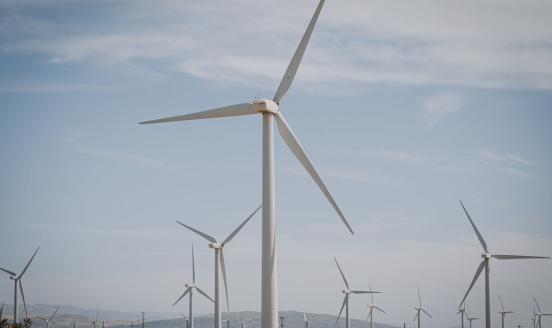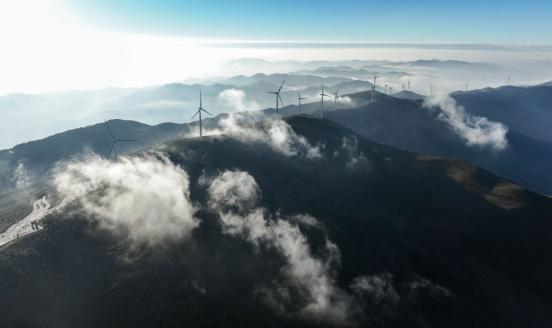COP28: key issues at stake and indicators of success
COP28 must convey the importance to governments of better integrating climate considerations into financial decision-making.

The twenty-eighth Conference of the Parties to the United Nations Framework Convention on Climate Change (COP28), starting in Dubai on 30 November will for the first time be hosted by a country that is a member of the Organisation of the Petroleum Exporting Countries. The conference will be chaired by an oil company CEO, sparking fears of green washing and conflicts of interest. The first global stocktake of global climate action under the Paris Agreement will be delivered in Dubai, presenting an opportunity to face the world’s failure in addressing the climate crisis and to push actions to correct course. COP28 will take place amid the war in Ukraine and the Israel-Hamas conflict, whose impact on international alliances will likely have ramifications for climate negotiations. In this analysis, we discuss the key issues at stake and propose some indicators to measure success at COP28.
Global Stocktake
The Paris Agreement mandates a periodic evaluation of global climate action, called a Global Stocktake (GST). The five-year long process involved scientists, institutional players and the private sector through the We Mean Business Coalition. Its primary purpose is to facilitate the assessment of ongoing progress and push for stronger commitments. The GST to be adopted in Dubai will focus on three key domains: mitigation, adaptation, and climate finance. As the updated Nationally Determined Contributions (NDCs) in Glasgow failed to put the global community on track to meet its temperature targets, the GST results are poised for intense scrutiny. NDCs are targets and actions set by individual countries to reduce greenhouse gas emissions. They allow for the assessment and comparison of each country's efforts to reduce carbon emissions, evaluating whether global and national actions are aligned with the goals of the Paris Agreement. Once the GST is complete, countries will have two years to revise their NDCs. However, the way the GST will be framed at COP28 will be important in building momentum to tackle climate change. COP28 must convey the importance to governments, companies, and financial markets of better integrating climate considerations into public and private economic and financial decision-making.
Mitigation: fossil fuels phase-out and global targets for renewables and energy efficiency
COP27 ended with generic provisions on the need to boost ‘low-emission energy’ and did little to define the future of fossil fuels. Earlier this year, however, G7 leaders stated their objective to rely predominantly on renewables by 2035
1
See Kana Inagaki, David Sheppard and Andy Bounds ‘G7 ministers agree to accelerate phase-out of fossil fuels’, Financial Times, April 2023, https://www.ft.com/content/92cf7345-6da0-4903-9993-7ef291af921c
. They pledged to intensify efforts to phase-out unabated coal power generation (where power plants generate coal without equipment for emission control such as carbon capture or storage technologies).
At COP28, there will be pressure to define deadlines on the phase-out of unabated fossil fuels. The EU is putting political capital behind this objective, with Member States advocating for a global phase-out of all unabated fossil fuels well before 2050. They have also called for an immediate reduction in fossil fuel subsidies
2
See Council of the EU press release of 16 October 2023, “COP28: Council sets out EU position for UN climate summit in Dubai”, https://www.consilium.europa.eu/en/press/press-releases/2023/10/16/cop2…
. This is likely going to be a point of contention for developing countries at COP28. Developing countries would prefer for developed countries to reach net-zero well before 2050, so a larger carbon budget could be allocated for countries needing it the most
3
See Sarita Chaganti Singh, ‘India to push developed nations to become ‘carbon negative’ before 2050’, Reuters, October 2023, https://www.reuters.com/sustainability/india-push-developed-nations-bec…
.
The COP28 presidency is not shying away from this discussion, deeming the phase-down of fossil fuels as ‘essential and inevitable’. However, the negotiations rotate around oil and gas scope 1 and 2 emissions, which relate to the emissions of oil companies in their production of oil and gas, rather than the emissions caused by burning the latter. While such a commitment from the industry would be welcome, it would not cover scope 3 emissions (ie, final consumption of oil and gas) that represent the bulk of oil and gas emissions in total energy-related emissions (ie, 40% vs 15% of scope 1 and 2) (IEA, 2023). Sectoral commitments are crucial to raise ambitions and initiatives such as the alliance for low-carbon cement or for green steel and aluminium could bring to the discussion the concept of sectorial climate clubs (Hermwille et al, 2022).
A consensus on a global target for renewables and energy efficiency seems within reach and could be adopted at COP28. Strongly supported by the EU, the target aims at tripling renewable power capacity to 11 TWh and doubling energy efficiency improvements by 2030. A consensus on the targets therefore seems within reach. The recent agreement between the US and China at the Biden-XI Summit
4
See U.S. Department of State press release of 14 November 2023, “Sunnylands Statement on Enhancing Cooperation to Address the Climate Crisis”, https://www.state.gov/sunnylands-statement-on-enhancing-cooperation-to-…
signalled renewed cooperation between the world’s two largest polluters. G20 leaders are also in favour of global renewable energy adoption
5
See IRENA press release of 11 September 2023, “G20 Leaders Endorse IRENA Recommendations for Global Renewable Energy Adoption”, https://www.irena.org/News/pressreleases/2023/Sep/G20-Leaders-Endorse-I…
. The Nairobi Declaration, adopted at the conclusion of the Africa Climate Summit in September, means that African leaders now have a target of achieving 300GW of renewable energy generation capacity for Africa by 2030
6
See The African Leaders Nairobi Declaration on Climate Change and Call to Action, 6 September 2023, https://www.afdb.org/sites/default/files/2023/09/08/the_african_leaders…
. Discussions at COP28 are expected to consolidate those commitments.
Climate finance
Article 2 of the Paris Agreement states that it shall be implemented on a principle of common but differentiated responsibilities and respective capabilities among countries. In the eyes of developing countries, this implies that while all COP participants must take actions to tackle the climate crisis, historical emitters have more responsibility and capability to support developing countries to bring down their emissions.
This issue, at the core of global climate governance, concretely boils down to the commitment taken in 2009 by rich nations to provide $100 billion a year of climate finance support to developing countries. The latter have long complained that climate finance is often disbursed in too little amounts (Georgieva et al, 2022), too slowly and too unfairly (Timperley, 2021).
In 2021, developed countries mobilised $89.6 billion to developing countries, around 68% of which was allocated through concessional loans. While this is adequate for de-risking, it might worsen the debt liability of developing countries, which advocate for a higher share of grants (OECD, 2023).
Rich nations will not only be asked to finally fill the gap to the $100 billion a year commitment from 2009 but they will also have to initiate negotiations on a new annual climate finance target to replace (and increase) the $100 billion pledge. Countries committed to adopting this new collective quantified goal (NCQD)
7
See UNFCCC, New Collective Quantified Goal on Climate Finance, https://unfccc.int/NCQG
by the end of 2024 (to come into effect in 2025).
Headline figures will unlikely be decided upon in Dubai, but the tone will be set for further discussions in the year ahead. Additionally, the reform of the Multilateral Development Banks will likely be under the spotlight in discussions on risk-sharing strategies and on how to mobilise more private finance.

COP27 called on developed nations to increase bilateral climate finance and to increase support for climate finance mechanisms like the Green Climate Fund. The Prime Minister of Barbados Mia Mottley championed the Bridgetown Initiative in Sharm El-Sheik as a key proposal advocating for the reform of international financial systems. Reform of this kind would involve a recapitalisation of the development banks, allowing them to provide far more assistance to developing countries. Although concrete proposals were not finalised, the Paris Summit in June 2023 advanced discussions in this space. The World Bank, the United Kingdom, the United States and France have agreed to temporarily suspend debt repayments for countries affected by climate disasters.
Another instrument gaining momentum is debt-for-climate swaps, where developing countries receive favourable conditions on external financing aimed at specific conservation or climate-related projects. For example, Barbados has recently reached an agreement with the European Investment Bank and the Inter-American Development Bank for $300 million to finance the upgrade of its water infrastructure
8
See Rachel Savage, “Barbados ‘debt-for-climate’ swap backed by $300 mln EIB, IADB guarantee – statement”, Reuters, November 2023, https://www.nasdaq.com/articles/barbados-debt-for-climate-swap-backed-b…
.
Loss and damage
An achievement of COP27 was the launch of a loss and damage fund along with a ‘transitional committee’ to guide its operationalisation. The committee reached consensus in November 2023
9
See COP28 press release of November 2023, “COP28 Presidency Hosts Breakthrough Meeting That Agrees Recommendations On Operationalization Of Loss And Damage Fund”, https://www.cop28.com/en/news/2023/11/COP28-Presidency-hosts-breakthrou…
, paving the way for approval at COP28. The adoption of the text seems likely, but a set of challenging questions arise.
First, the agreement at COP27 mandated establishing support to developing countries vulnerable to the negative effects of climate change. However, there is no consensus on which countries qualify for support. The final text
10
See UNFCCC “Fifth meeting of the Transitional Committee” of November 2023, https://unfccc.int/sites/default/files/resource/TC5_4_Cochairs%20draft%…
proposes a resource allocation system that would set a minimum percentage allocation to the least developed countries and small island states but lacks specific examples.
Second, the agreement calls upon developed countries to lead in financing and leaves others to contribute voluntarily. This compromise arose from disputes with the US resisting financial obligations. Along with the EU, the US advocated for shared responsibility with non-Annex II countries like Saudi Arabia and China
11
These countries were considered developed in 1992 and hence deemed responsible for providing foreign finance: see https://unfccc.int/cop3/fccc/climate/annex2.htm
. The text emphasises cooperation without liability or compensation and disregards historical emissions, which is a point of contention for developing countries.
Third, the World Bank is the interim host of the loss and damage fund. However, there is no term limit and there has been no decision on future hosts. This concession made by developing countries to the demands of the US and the EU faced resistance because the World Bank prefers loans rather than grants, slow funding disbursements during climate disasters and US dominance. Developing countries favoured an independent UNFCCC-based facility like the Green Climate Fund.
Fourth, the final text lacks clarity on the fund’s scale and funding sources mentions a ‘wide variety of sources’ like grants and concessional loans. These are intended to be paired with innovative means from public, private and philanthropic funding sources. Developing countries prioritise grant-based funding instead. The recent declarations
12
See the European Commission statement of 13 November 2023, ‘Joint Statement by Commissioner for Climate Action and the COP28 President Designate’, https://ec.europa.eu/commission/presscorner/detail/en/statement_23_5722
from the EU about making significant contributions to the fund have underscored the differences between the EU and the US regarding this issue
13
See Zia Weise, Sara Schonhardt and Karl Mathiesen, “US-EU unity ruptures over climate damage payments”, Politico, 14 November 2023, https://www.politico.eu/article/us-eu-unity-rupture-climate-crisis-dama…
and President Biden has been notably less explicit about the amount and timing of contributions. Tensions are high as a failure to agree on the fund would be the most visible sign failure of COP28.
Climate adaptation
In addition to increased exposure and sensitivity to climate change, limited adaptive capacity makes developing countries particularly vulnerable to climate change. Adaptation deficit is increasingly the focus of developing countries in climate talks. Adaptation finance is difficult since projects do not necessarily create a business case and hence do not attract private capital to the same extent as mitigation projects. In fact, mitigation projects are by far the largest recipients of climate finance (OECD, 2022). At COP27, despite initial resistance, the conference upheld the Glasgow commitment to double adaptation finance, promoting additional contributions to developing national funds. The launch of the Sharm-El-Sheikh Adaptation Agenda set a blueprint for comprehensive global adaptation measures across key sectors.
Another possible success for COP28 would be the adoption of the Global Goal on Adaptation, which would offer an international framework on adaptation, setting objectives and indicators to monitor and quantify progress. Discussions on adaptation have faced hurdles on the issue of financing and measurement
14
See Josh Gabbatiss and Molly Lempriere, “Bonn climate talks: Key outcomes from the June 2023 UN climate conference”, Carbon Brief, 16 June 2023, https://www.carbonbrief.org/bonn-climate-talks-key-outcomes-from-the-ju…
. One thing is to measure emissions, another is assessing a certain ecosystem’s natural capital or the level of resilience to climate shocks of a community. The level of flexibility around the new adaptation framework has long been debated. Developing countries would like to see the creation of more specific absolute goals (eg, India calls for a target on reducing mortality from extreme events and climate-related disasters to zero), so that they reflect the different levels of a given country’s exposure to climate change and of its domestic availability of finance.
Food and agriculture
The UAE Minister for Climate Change and the Environment announced during the summer that this COP presidency will be ‘hyper focused’ on food systems. There has been increasing attention on the topic since COP27, partly thanks to the publication of a Nature study estimating that food-systems account for 34% of global GHG emissions (Crippa et al, 2021). The Food Systems and Agriculture Agenda was launched in July 2023, with the main aim of aligning national food systems and agricultural policies with NDCs and National Adaptation Plans (NAPs) by 2025
15
See UN press release of 28 July 2023 “COP28 Presidency and UN Food Systems Coordination Hub Join Forces to Harness the Power of Food Systems Transformation for Climate Action”, https://www.unfoodsystemshub.org/latest-updates/news/detail/press-relea…
. This would be an important achievement as agriculture has tended to take the backseat of mitigation agreements and major economies have historically done little to abate emissions in the sector (FAO, 2020). The COP28 Presidency will likely stress the role of technology with the UAE and US likely to collaborate towards common goals .
Indicators of success
COP28 is likely to end with a mixed result that will be celebrated by some and decried by others. The indicators of success will largely depend on more ambitious commitments and concrete actions to advance the implementation of climate targets such as:
- Global Stocktake: countries show readiness to increase the ambition of their decarbonisation plans by 2030 following the GST.
- Fossil fuel phase-out and global targets on renewables and energy efficiency: the parties reach an agreement on the phase-out of unabated fossil fuels by a specific date and clarify that their usage should by then be reduced only to certain hard-to-abate sectors. Developed nations support new global targets on renewables and energy efficiency with real financial commitments, as the EU pledged to do in November 2023.
- Climate finance: rich countries step up their efforts and reach the level of $100 billion in climate finance as agreed upon in 2009, while also increasing their focus on adaptation. COP28 paves the way for the approval of an ambitious New Collective Quantified Goal by the end of-2024.
- Loss and damage fund: the parties approve and operationalise the transition committee proposals, solving the pending important issues.
- Adaptation: the parties agree on an ambitious global goal on adaptation and embrace a clear technical framework based on science-driven targets.
- Food: governments start aligning their agriculture policies with their NDCs, in view of starting to decarbonise this long-neglected sector.
To conclude, COP28 represents an important opportunity for the Global North to gain back some of the credibility lost in the Global South over several years, during the pandemic and the energy crisis. Serious steps towards ensuring proper climate finance, loss and damage and adaptation will be key.
References
FAO (2020) Emissions Due to Agriculture. Global, Regional and Country Trends. 2000-2018.
IEA (2023) Emissions from Oil and Gas Operations in Net Zero Transitions – Analysis (Paris: International Energy Agency), available at: https://www.iea.org/reports/emissions-from-oil-and-gas-operations-in-net-zero-transitions
J. Timperley (2021) ‘The broken $100-billion promise of climate finance — and how to fix it’, Nature, 598:7881, 400–402, available at: https://doi.org/10.1038/d41586-021-02846-3
K. Gaspar and C. Pazarbasioglu (2022) ‘Poor and Vulnerable Countries Need Support to Adapt to Climate Change’, IMF, available at https://www.imf.org/en/Blogs/Articles/2022/03/23/blog032322-poor-and-vu…
L. Hermwille, S. Lechtenböhmer, M. Åhman, H. van Asselt, C. Bataille, S. Kronshage… and H. Trollip (2022) ‘A climate club to decarbonize the global steel industry’, in Nature Climate Change, 12:6, 494–96, available at https://doi.org/10.1038/s41558-022-01383-9
M. Crippa, E. Solazzo, D. Guizzardi, F. Monforti-Ferrario, F. N. Tubiello and A. Leip (2021) ‘Food systems are responsible for a third of global anthropogenic GHG emissions’, available at https://doi.org/10.1038/s43016-021-00225-9
OECD (2022) 'Aggregate Trends of Climate Finance Provided and Mobilised by Developed Countries in 2013-2020', available at: https://www.oecd.org/climate-change/finance-usd-100-billion-goal/aggreg…
OECD (2023) 'Climate Finance Provided and Mobilised by Developed Countries in 2013-2021: Aggregate Trends and Opportunities for Scaling Up Adaptation and Mobilised Private Finance', 16 November, available at: https://doi.org/10.1787/e20d2bc7-en



